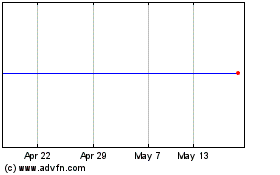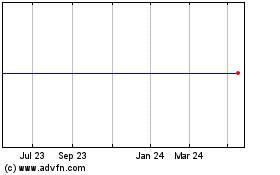TIDMGWP
RNS Number : 1575S
GW Pharmaceuticals PLC
28 November 2012
Results from GW Phase IIa Study Identify Promising New Oral
Cannabinoid Anti-Diabetic Treatment
Porton Down, UK; November 28 2012:GW Pharmaceuticals plc
(AIM:GWP) reports results from a Phase IIa exploratory study which
has identified GW's novel cannabinoid, GWP42004, as a potential new
oral treatment for type 2 diabetes. In the study, which examined a
number of clinically relevant endpoints in patients with type 2
diabetes, GWP42004, an oral cannabinoid treatment, showed
consistent evidence of anti-diabetic effects.
Dr Garry Tan, formerly of the University of Nottingham and now
Consultant Physician at NIHR Biomedical Research Centre in the
Oxford Centre for Diabetes, Endocrinology & Metabolism, and the
study's Principal Investigator, said, "The positive findings from
this early stage exploratory study are very encouraging. Even in
small numbers of patients, GWP42004 shows consistent evidence of
anti-diabetic effects. The data clearly support advancing GWP42004
into further clinical development. If larger studies confirm these
findings, GWP42004 would have the potential to offer a novel
orally-administered treatment option within one of the largest
therapeutic areas where there still exist serious unmet medical
needs."
This 5-arm study was a 13 week randomised, double blind, placebo
controlled, parallel group, pilot study of GWP42004 (5mg), GWP42003
(100mg) and two separate ratios (5mg:5mg and 100mg:5mg) of
GWP42003:GWP42004. Each treatment was formulated as oral capsules
and administered twice daily.
The exploratory study enrolled a total of 62 type 2 diabetes
patients, such that each treatment group had 11-14 patients. Due to
this small sample size per group, 10% statistical significance
levels were applied (i.e. p<0.1) and identification of
consistent trends were considered a key objective of the study.
The study has identified GWP42004 as the company's lead
candidate in this therapeutic area and showed that it has the
following desirable anti-diabetic effects:
Statistically significant results:
-- Reduced fasting plasma glucose levels (p=0.04), with an increase in fasting insulin.
-- Improved pancreatic beta-cell function (p=0.0074).
-- Increased serum adiponectin (p=0.0024) - an increase in adiponectin is considered desirable.
-- Reduced systolic blood pressure (p=0.099) - a desirable
effect in a patient population with increased cardiovascular
morbidity.
-- Reduced serum IL-6 levels (p=0.076) - the inflammatory
cytokine IL-6 been proposed to affect glucose homeostasis and
metabolism directly and indirectly by action on skeletal muscle
cells, adipocytes, hepatocytes, pancreatic <BETA>-cells, and
neuroendocrine cells).
Positive trends:
-- Increased insulin sensitivity: (+4.99 change for GWP42004 vs
a -4.26 change for placebo, non-significant trend p>0.1).
-- Raised GLP-1 (62% increase from baseline, non-significant
trend p>0.1), GLP-1 (glucagon-like peptide-1) is a natural
hormone that mediates insulin secretion in a glucose dependent
manner. In type 2 diabetics, GLP-1 levels are reduced leading to
both poor insulin secretion and reduced pancreatic islet insulin
content.
-- Reduced serum C-Reactive Protein (CRP) levels (p=0.1) -
Elevation of C-reactive protein (CRP) is associated with an
increased risk of insulin resistance.
Several of these findings are consistent with pre-clinical data
generated in collaboration with Professor Mike Cawthorne at the GW
Metabolic Research Laboratory, University of Buckingham. In
particular, pre-clinical data show that GWP42004 protects the
insulin-producing cells of the pancreatic islets, a highly
desirable feature of a new anti-diabetic medicine, increases
insulin sensitivity, and reduces fasting plasma glucose levels.
Although patient numbers in the study are small, the data offer
the hypothesis that the mechanism of action for GWP42004 may be
that it acts as an oral GLP-1 (glucagon-like peptide-1)
secretagogue. GW plans to undertake additional research to further
evaluate this hypothesis. Injectable GLP-1 agonists are emerging as
an important new class of treatment to treat type 2 diabetes and an
oral product that stimulates GLP-1 release is likely to be
attractive both to patients and to the pharmaceutical industry.
The study did not show meaningful effects for GWP42003 and the
other cannabinoid ratios. There was also no improvement in the
pre-specified primary endpoint of HDL cholesterol, an endpoint
which had been selected based on pre-clinical data for GWP42003.
These study findings therefore achieve the important objective of
identifying GWP42004 as the lead candidate in this therapeutic area
and allowing GW to direct future GWP42004 research on anti-diabetes
endpoints.
The study drugs were well-tolerated, with only 4 patients
withdrawing from the study due to adverse events. Overall, a
slightly greater proportion of patients experienced adverse events
on placebo than on study drug (93% vs 77%).
Dr Stephen Wright, GW's R&D Director, said, "We are very
pleased that the promising results seen for GWP42004 in our
pre-clinical research have been borne out in this first early proof
of principle clinical trial. Key findings include the preservation
of beta cell function and evidence across a number of endpoints
suggesting an increase in insulin sensitivity. GW will now move
ahead to explore the clinical relevance of the desirable
anti-diabetic features of GWP42004 across a range of doses in a
larger Phase 2 study in 2013."
Enquiries:
GW Pharmaceuticals plc (Today) +44 20 7831 3113
Dr Geoffrey Guy, Chairman (Thereafter) +44 1980
557000
Justin Gover, Managing Director
FTI Consulting +44 20 7831 3113
Ben Atwell / John Dineen
Peel Hunt LLP +44 20 7418 8900
James Steel / Vijay Barathan
Notes to Editors:
About GW
GW was founded in 1998 and listed on the AIM, a market of the
London Stock Exchange, in June 2001. Operating under license from
the UK Home Office, the company researches and develops cannabinoid
pharmaceutical products for patients who suffer from a range of
serious ailments, in particular multiple sclerosis and cancer pain.
GW has assembled a large in-house scientific team with expertise in
cannabinoid science as well as experience in the development of
both plant-based prescription pharmaceutical products and medicines
containing controlled substances. GW occupies a world leading
position in cannabinoids and has developed an extensive
international network of the most prominent scientists in the
field. For further information, please visit www.gwpharm.com
This information is provided by RNS
The company news service from the London Stock Exchange
END
MSCPGGMCGUPPPUM
Gw Pharmaceuticals (LSE:GWP)
Historical Stock Chart
From Jun 2024 to Jul 2024

Gw Pharmaceuticals (LSE:GWP)
Historical Stock Chart
From Jul 2023 to Jul 2024
